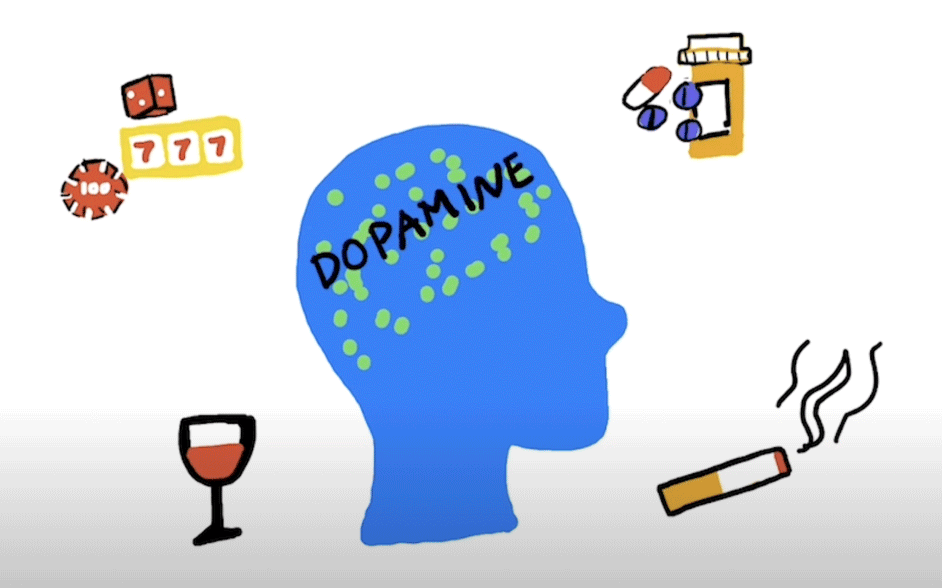- Mumbai, New Delhi, Bangalore
- (+91) 81518 30000
- WhatsApp Now
- contact@vedawellnessworld.com
Cannabis, commonly known as marijuana, has gained significant attention in recent years due to its increasing legalization and usage for both medicinal and recreational purposes. Despite its perceived safety and therapeutic benefits, cannabis has the potential to be addictive, and understanding this addiction involves exploring the intricate workings of the brain’s reward system.
Cannabis contains over 100 chemical compounds known as cannabinoids, with delta-9-tetrahydrocannabinol (THC) being the primary psychoactive component. THC interacts with the brain’s endocannabinoid system, particularly the CB1 receptors, leading to various effects such as euphoria, relaxation, altered sensory perceptions, and increased appetite.
Addiction is a complex brain disorder characterized by compulsive drug seeking and use despite harmful consequences. It involves both physical dependence, where the body adapts to the drug’s presence, and psychological dependence, where the drug becomes central to the user’s thoughts and emotions.
The brain’s reward system is a group of structures involved in the regulation of pleasure, motivation, and reinforcement learning. Key components of this system include the nucleus accumbens, the ventral tegmental area (VTA), and the prefrontal cortex. These structures communicate via the neurotransmitter dopamine, which plays a crucial role in the sensation of pleasure and reward.
Nucleus Accumbens: Often referred to as the brain’s pleasure center, it is critical for processing rewards and reinforcing behaviors.
Ventral Tegmental Area (VTA): Produces dopamine and sends it to various brain regions, including the nucleus accumbens.
Prefrontal Cortex: Involved in decision-making, impulse control, and executive functions. Cannabis interacts with the brain’s reward system primarily through its active components, such as THC (tetrahydrocannabinol) and CBD (cannabidiol). THC activates the endocannabinoid system, which is linked to various physiological processes, including pleasure, memory, and appetite. The interaction of THC with CB1 receptors in the brain’s reward pathways, such as the nucleus accumbens and the ventral tegmental area, influences dopamine release, which is a critical neurotransmitter in the reward system. [2]

When cannabis is consumed, THC activates the CB1 receptors in the brain. This activation leads to increased dopamine release in the nucleus accumbens, creating the sensation of euphoria and pleasure. The brain learns to associate these pleasurable effects with cannabis use, reinforcing the behavior.
Cannabis, like all drugs of abuse, increases dopamine activation in the brain’s reward system, specifically the mesolimbic pathway. This dopamine release in areas like the striatum creates feelings of reward and reinforces drug use. This dopamine activity is also crucial for learning processes that contribute to addiction.
The endocannabinoid system, which is affected by cannabis, regulates dopamine release at several points in the brain. Components of this system, such as receptors and enzymes, could be potential targets for treatments of addiction and other motivation-related disorders.
When endocannabinoid signalling is disrupted, it reduces the increase in dopamine that drugs cause and the dopamine responses triggered by cues associated with drug use. Recent advances in technology are allowing scientists to study these interactions in greater detail, helping us understand how the endocannabinoid system influences dopamine release and addiction. [1]
“A study found a significant prospective association between marijuana use and decreased NAcc activation to monetary reward anticipation. Our findings indicate that continued marijuana use may result in a blunted NAcc response to nondrug rewards, even when controlling for previous and concurrent substance use. The model also controlled for potential risk factors, such as familial risk for SUD and baseline differences in NAcc activation. This work provides robust evidence that marijuana use has long-term associations with anticipatory reward processing.”[3]
This basically means that continuous and long-term marijuana usage leads to blunted or slowed response to reward anticipation and thus a slower activation of the rewards cycle

Genetics: Genetic predisposition can make some individuals more susceptible to addiction.
Age of First Use: Early exposure to cannabis, especially during adolescence, increases the risk of developing addiction.
Mental Health: Co-occurring mental health disorders such as anxiety and depression can contribute to substance abuse.
Social Environment: Peer pressure and the social environment play a significant role in the initiation and continuation of drug use.
Behavioral Therapies: Cognitive-behavioral therapy (CBT) and contingency management are effective approaches in treating cannabis addiction.
Support Groups: Participation in groups like Marijuana Anonymous provides peer support and encouragement.
Medical Interventions: Although there are no FDA-approved medications specifically for cannabis addiction, certain medications can help manage withdrawal symptoms and co-occurring mental health conditions.
Lifestyle Changes: Developing healthy habits, such as regular exercise, proper nutrition, and mindfulness practices, can support recovery.